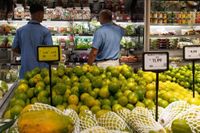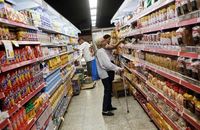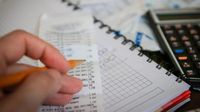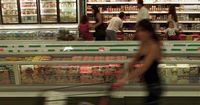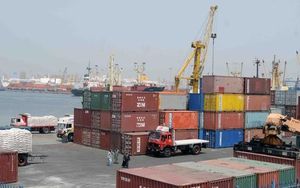The Brazilian economy is experiencing notable fluctuations in inflation rates, as reflected in the latest data released by the Instituto Brasileiro de Geografia e Estatística (IBGE) on April 11, 2025. The Índice Nacional de Preços ao Consumidor Amplo (IPCA), the official inflation index for the country, registered a rise of 0.56% in March, a significant decrease from the 1.31% increase observed in February. This marks the largest increase for a month of March since 2023, when the index rose by 0.71%.
In the accumulated year-to-date, the IPCA has risen by 2.04%, and over the past twelve months, it stands at 5.48%, surpassing the previous year's figure of 5.06%. In March 2024, the inflation rate was notably lower at just 0.16%. The current figures have raised concerns among economists, as the inflation rate remains above the ceiling of the continuous inflation target set by the National Monetary Council (CMN), which is 4.5%.
According to market analysts, the slowdown in inflation is attributed to the waning impact of energy prices, particularly following the conclusion of the Itaipu bonus that had previously inflated costs in February. Nonetheless, the food and beverage sector continues to exert significant pressure on the overall inflation index, accounting for approximately 45% of the March figure.
The food and beverage group saw a marked acceleration in price increases, climbing from 0.70% in February to 1.17% in March. Contributing to this rise were substantial price hikes in key items such as tomatoes (22.55%), chicken eggs (13.13%), and ground coffee (8.14%). Together, these items accounted for a quarter of the inflation recorded in March. Notably, ground coffee has experienced a staggering 77.78% increase over the past year.
Fernando Gonçalves, a manager at IBGE, explained the dynamics behind these price increases: "For tomatoes, the heat during the summer months accelerated their maturation, leading to an early harvest in some areas. Without these harvests available in March, supply decreased, resulting in upward price pressure." He also noted that the rise in egg prices reflects higher corn costs, which are essential for poultry feed, compounded by increased demand during Lent.
In a broader context, the Brazilian government has expressed concern regarding food prices, especially eggs. Both Finance Minister Fernando Haddad and President Luiz Inácio Lula da Silva have addressed the issue, highlighting the impact of rising prices on consumers. The Associação Brasileira de Proteína Animal (ABPA) reported a 57.5% increase in Brazilian egg exports in February, driven by heightened demand from the United States due to an avian flu outbreak that has decimated nearly 170 million birds since 2022.
The transport sector also contributed to the overall inflation, with a 0.46% increase in March, albeit a slowdown from 0.61% in February. Rising airfare costs (up by 6.91%) and fuel prices (up by 0.46%) were significant factors in this increase. Meanwhile, the housing sector saw a decline in price growth, with costs rising just 0.24% in March, down from 4.44% in February, largely due to the reduced impact of electricity price hikes, which slowed to 0.12% from a staggering 16.80% the previous month.
Despite the overall decrease in inflation rates, the diffusion index, which indicates the breadth of price increases across various sectors, remained stable at 61% in March. This suggests that while some areas are experiencing price relief, inflationary pressures persist in many sectors.
Economists remain cautious about the outlook for inflation. André Valério, a senior economist at Inter, stated, "The results from March maintain the trend observed in recent inflation readings. While we continue to see strong pressures from food inflation, core inflation and service costs remain relatively pressured without indicating strong worsening trends. Therefore, we do not see this result altering the course of monetary policy."
The Central Bank of Brazil raised the Selic rate by one percentage point last month to 14.25%, signaling that further adjustments may be necessary in upcoming meetings. The market anticipates that the Selic rate may reach 15% by December 2025, as the Central Bank strives to curb inflation.
As the Brazilian economy navigates these complex inflationary challenges, the government and financial institutions are closely monitoring price trends and consumer impacts. The recent data illustrates the delicate balance between managing inflation and supporting economic growth, a situation that is likely to remain in focus as policymakers prepare for future decisions.
